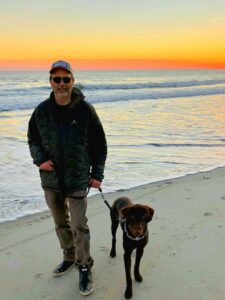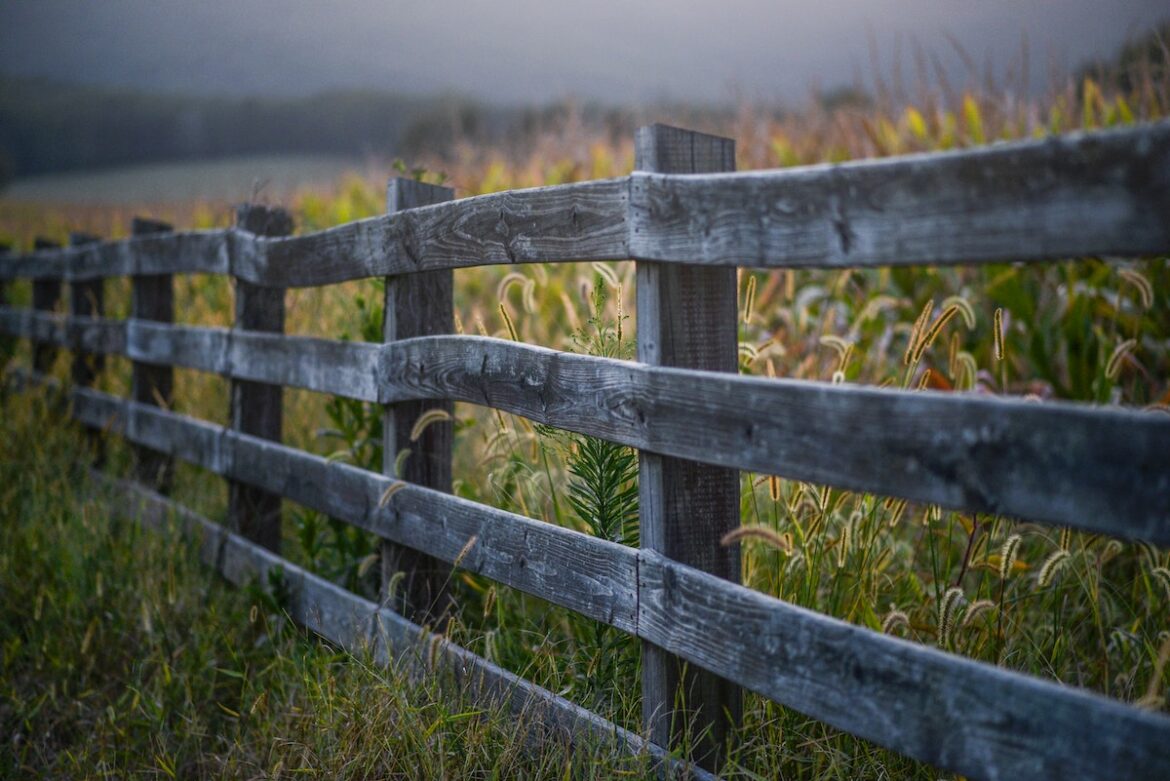By Mark Overbay
In a single afternoon, I experienced both sides of the non-paternity event (NPE) / biological family fence, and it all started with an unexpected phone call from a friend.
I was traveling out of state and three hours from home. Only a few minutes after I transitioned from the backroads of scenic North Carolina’s Blue Ridge Mountains to congested I-40, I received a text from a familiar name. Because I was driving, I called back rather than texted. I knew him as both a friend and professionally from a previous vocation and didn’t find the text unusual. Although the call started with small talk, like many conversations, I perceived some nervousness and hesitancy in his tone, so I encouraged him to “just spit it out.”
He told me that he’d purchased a DNA kit as a Christmas gift for his sister, the family’s historian and amateur genealogist, and she’d discovered something unexpected in her results. The entirety of their father’s side was missing in her DNA matches. Perhaps thinking there was a mistake, she encouraged her brother, my friend, to submit his sample. He found the same results; there were no DNA matches on his dad’s side. Over months of research, she had carefully and painstakingly pieced together a picture that seemed to reveal their biological father. His sister had reached out to this person and he consented to submit a DNA test for confirmation. The results were in. My father was their biological father. My friend told me we were half-brothers.
Life doesn’t equip you for every moment, and this was one of those moments for which I was unprepared. I had no script to follow, no foundations on which to rest or react. While still weaving through increasingly heavy traffic as I slowly edged toward Asheville, I inquired about the ages of my friend and his sister. Quick mental math revealed that the older had been conceived when I was two and the younger three years later. Though my parents later divorced, they were married during the births of both of these individuals. As shocking as it was, this news somehow too comfortably aligned with the mental image I had developed about my father. My father and I were significantly misaligned in nearly every meaningful aspect of personality, temperament, demeanor, and worldview. We have been estranged for years. I chuckled out loud as I processed it all.
There was, however, a certain uneasiness that began forming in the back of my head. I had submitted a sample for DNA analysis several years earlier, primarily because of curiosity about my ethnicity. I had given the DNA matches section little attention. My father, my friend, and his sister, all closely related, should have been recently added to my match list, yet I hadn’t received a single notification from the DNA company that these new persons had been added for my review. As several direct-to-consumer DNA companies offer this kind of service, I first thought my new relatives had used a test from a company different than the one I used, but my new half-brother confirmed that they’d used the same company I had. My next thought was that I was no longer notified when matches appeared. This seemed entirely plausible as I gave very little thought to these matters. I didn’t have the company app on my phone, I had forgotten my password, and I hadn’t brought my laptop. I was several hours from home and unable to further investigate this possibility.
In the continuing awkwardness that this kind of conversation quite naturally brings, my friend blurted out the question: “You’re the adopted one, right?”
“Adopted? Hell no, I wasn’t adopted,” was my immediate and somewhat embarrassingly defensive reply. I’d seen my birth certificate on many occasions. I had a copy at home. My father was listed as my father. The brother I was raised with couldn’t be adopted either, as he favored dad in both looks and several aspects of disposition. This adoption thing was wholly unexpected and unsettling. I wasn’t chuckling any longer. He was surprised by my reaction and referred me to his sister, as she had supplied him with this bit of information. I called her immediately, and she confirmed the story. My father had told her that mom was pregnant but not by him, and he married her and “adopted” me despite that. Never once in my 58 years had he or mom told me this story. Instead, he decided to reveal this to a stranger, assuming that I already knew. My mother, stricken with Alzheimer’s in her last years, had taken that secret to her grave. The rest of the drive was a blur. When I finally made it home, I rushed to my laptop, opened the DNA app, and checked my matches. There were no new close matches. My father, my friend, and his sister weren’t there. I searched all 80,000+ of my DNA matches for my surname. Not a single match appeared. As a series of waves rushed over me, a realization unfolded. My father wasn’t my father, at least biologically. The brother I was raised with was likely not a full sibling. My friend and his sister weren’t new half-siblings after all. I wasn’t adopted as my father had revealed, at least in the legal definition of the term. My mother was my biological mother. I found several names I recognized from her side of the DNA match list. I had no idea who my biological father was. In just a few hours, my family history unraveled. Fifty percent of my family tree was utterly wrong. I immediately shared all this with my wife and son and then called my brother and friend to inform them of my discovery.
As the reality set in, an unexpected calmness enveloped me. This genetic enlightenment, oddly, was both liberating and validating for me. As I became older, the differences and distance between my father and me grew wider and wider. I struggled to understand how two people could be any more unlike each other. I didn’t want to be anything like him and feared that somehow the pull of his genetic nature, whatever that meant, would slowly invade mine. I was conscious of the possibility and intentional with my thoughts and actions to guard against it. To learn there was no genetic blueprint with his stamp on it inside me was cathartic. A virtual weight had been lifted from my shoulders that I hadn’t realized was there. The change was immediately palpable.
After a fitful night’s sleep, I awoke energized. Although I had no idea how to do so, I was determined to find my biological family. While that’s another story, my “both sides of the fence” experiences helped better prepare me for what was to come.
Mark Overbay is a retired physician in his second vocation serving students in higher education. An avid reader, he’s highly interested in exploring the magic and mystery of the human condition. He’s an amateur painter and a novice writer. Overbay believes that writing informs and, hopefully, improves his thinking and processing. He and his wife of more than 30 years have one son and two young, energetic chocolate labs, Whiskey and Yona.






2 comments
Wow I’m an NPE DNA surprise I would love this magazine !!!
Thank you for contributing Mark. I found my DNA surprise at 65, three months ago. It’s quite a journey were on, I think I rather be in Paris 🙂